Are you worried that your estrogen levels may not be normal?
Are you getting older and experiencing weight gain or other changes that you know are not normal?
Are you younger but having issues with fertility, mood, or menstrual issues?
If so, then estrogen imbalance may be an issue for you.
Learn more about the symptoms associated with low estrogen, how it negatively impacts your body, the difference between high estrogen and low estrogen, how to test for low estrogen, and what to do about it in this post:
The Importance of Estrogen
Estrogen may be the most important sex hormone in the female body.
But why is it so important?
While it is true that both men and women have and need estrogen, it plays a greater and more important role in the female body.
Estrogen helps to regulate the following systems in your body:
- Metabolism and body weight (1)
- Bone density (2)
- Brain function (3)
- Libido and sex drive (4)
- Appetite (5)
- Fertility (6)
But what does this mean for you?
It means that if your estrogen is off (either because it is too high or too low) you will experience problems in these areas and you will present with symptoms.
We will talk more about the symptoms associated with low estrogen in a minute, but for now, we need to focus on what estrogen actually is.
The term “estrogen” is used to refer to a family of estrogenic compounds that have specific functions in the body.
It turns out that a better term to use, when we discuss estrogen, is estradiol.
But don’t let that fool you, there are actually many different types of estrogens in your body including estriol (8) and estrone (9).
All of these estrogens differ in how they impact your body and your cells.
The good news is that it is fairly easy to diagnose and treat low estrogen, provided you take the right approach.
Low Estrogen Symptoms
Part of diagnosing low estrogen is placing emphasis on how you present clinically otherwise known as your symptoms.
Symptoms are a critical component to diagnosing low estrogen because of the variability (day to day and month to month) of estrogen in your serum.
Your symptoms can clue you in on what is happening in your body and they can be used to determine if your treatments are actually working.
You can find a list of symptoms associated with low estrogen below:
- Hot Flashes (10)
- Weight Gain (11)
- Insomnia
- Warm Flushes
- More wrinkles on the skin (12)
- Reduced “Glow” to the skin (13)
- Vaginal Dryness
- Decreased Libido
- Painful intercourse
- Mood swings
- Depression
- Headaches
- Lack of menstrual cycle or irregular menstruation
- Low energy or fatigue
- Increased frequency of urinary tract infections
- Bone loss (14)
- Increased risk of heart disease (15)
Remember:
Women of any age can experience the symptoms of low estrogen.
Estrogen Dominance vs Low Estrogen – What’s the Difference?
It’s important to differentiate low estrogen from high estrogen (otherwise known as estrogen dominance).
It’s important because the majority of women who experience the symptoms associated with low estrogen tend to be older women in menopause and perimenopause.
But this doesn’t mean that younger women cannot experience low estrogen symptoms as well.
Occasionally, women will start looking around on the internet to try and determine which category they fall into.
If you fall into this category, and you aren’t sure what issue you are dealing with, then you can refer to this list of symptoms associated with high estrogen or estrogen dominance.
Younger women tend to experience the symptoms associated with high estrogen much more frequently than low estrogen due to issues such as PCOS, insulin resistance, and exposure to certain chemicals which interfere with estrogen receptors.
The symptoms of high estrogen tend to be the exact opposite when compared to low estrogen, making it easy to differentiate between the two conditions.
What Causes Low Estrogen?
It’s important to remember that all women will eventually suffer from low estrogen as they go through menopause.
Menopause is the normal age-related decline in ovarian function that all women must go through (16).
In addition, all women will notice a slow and steady decline in estrogen as they age (starting at around age 35) and this is also unavoidable.
These important factors cannot be changed and will always be playing some role in your estrogen level.
In most cases, women suffering from low estrogen tend to be older (either going through perimenopause or menopause) but that doesn’t mean that young women can’t experience low estrogen.
Low estrogen in young women is usually the result of some other pathological condition such as excessive exercise, severe dieting, pituitary problems, and so on.
If you are a young woman it is NEVER normal for you to experience low estrogen.
You can find a list of potential causes of low estrogen below:
- Age-related decline from menopause (17) (#1 reason for most women!)
- Severe calorie restriction (from diets)
- Anorexia or other eating disorders (18)
- Excessive exercise (19)
- Pituitary problems (the gland in your brain which produces FSH and LH)
- Lack of sleep (reduction in up to 60% of estradiol) (20)
Testing for Estrogen
In many cases, low estrogen is suspected due to how you present or the symptoms that you are experiencing.
Low estrogen is then confirmed through lab testing.
Unlike testing for high estrogen (which can be difficult), testing for low estrogen is quite simple.
To do this you will want to have your Doctor order the following tests:
- Serum Estradiol – Estradiol is the most potent estrogen in your serum and can be used as a proxy measurement for total estrogen in the body.
- Serum Progesterone – Progesterone should always be evaluated with estradiol because of how they interact with one another. You can learn more about the importance of progesterone and how it influences estradiol here.
- Sex Hormone Binding Globulin – Estrogen (along with thyroid hormone) influences sex hormone binding globulin. Low estrogen is often accompanied by low SHBG. Testing for the SHBG is helpful if your labs look somewhat “normal” but you are experiencing the symptoms of low estrogen.
I’ve provided an example of what low estradiol looks like through lab testing (this is in a postmenopausal woman):

Low estrogen is usually identified as being below the standard reference range, in this case, it is less than 15 pg/mL.
You can see that your estradiol level should never be below 19 (at the absolute lowest) if you are regularly menstruating.
Estradiol, as seen above, has wide and variable ranges depending on the time of the month that you test it.
This range can potentially make identifying low estradiol difficult in some patients.
Why?
Take for instance the follicular phase (referenced above) which shows that during this time frame (the first two weeks of your cycle) your estradiol level should be anywhere between 19 and 144 pg/mL.
What if your body normally produces around 100 pg/mL of estradiol during the follicular phase, but when you test it your result is closer to 30 pg/mL.
Both are technically within the reference range, but one result may be low for your body.
Because of this, it’s always a good idea to have a baseline “normal” level of estrogen (if possible) and to combine your testing with your symptoms.
If you are obviously experiencing abnormal symptoms, but your lab tests say you are “normal”, you may need to re-evaluate your interpretation of those lab results or look into other problems.
Low Estrogen & Weight Gain
Does low estrogen lead to weight gain?
The answer is that yes, it absolutely has the potential to lead to weight gain (though not all women will necessarily experience weight gain).
This is well established in clinical studies which show that women who enter menopause gain on average around 15 pounds (some more and some less).
If you have a history of recent weight gain (within the last 2 years), you consume a lot of fat in your diet, your dietary intake of fiber is low, you consume alcohol regularly, and/or you smoke, then you have a much higher risk of gaining weight.
The best way to avoid this weight gain that is often associated with menopause is to go into menopause as healthily as possible.
That means cleaning up your diet, avoiding gimmicky weight loss and fad diets, reducing or eliminating how much you drink, and increasing your consumption of fruits and veggies.
It’s best to start these therapies years before you even start experiencing the symptoms of perimenopause and menopause!
We don’t know exactly why low estrogen causes weight gain, but it does appear that low estrogen results in changes to how your body metabolizes and uses fat (22).
These changes result in an increase in total body fat and a change in the distribution (where your body stores fat) of how your fat is stored.
Women who enter menopause tend to gain more weight in general and the majority of that weight seems isolated to the stomach area.
Because it’s far more difficult to lose weight once you have it, the best solution is to try and prevent the weight gain from occurring.
Treatment + Hormone Replacement Therapy (& Supplement Options)
There are two main approaches to treating low estrogen in women:
- #1. Bio-Identical Hormone Replacement Therapy – This should be the preferred route (if available to you). HRT refers to the use of exact copies of the hormones that you are deficient in. HRT can be given so that it is safe and effective and, if done correctly, will not increase your risk of breast cancer or other issues (23).
- #2. Supplements – Supplements (such as flaxseed, black cohosh, and evening primrose oil) can help reduce the symptoms associated with low estrogen. These supplements are not as effective as HRT but they can be used in conjunction with HRT or by themselves if necessary.
Bio-identical hormone replacement therapy is the definitive and most effective way to treat low estrogen.
By using hormone replacement therapy (HRT for short) you are supplying your body with the exact same hormones that it is deficient in.
This causes an increase in those hormones and tends to quickly reverse the symptoms associated with their decline.
But be careful when using HRT.
You should look for a Doctor that specializes in hormone balance to ensure that you are getting enough hormones but not too much.
Doctors can alter the amount of estrogen that you receive (dose), the way that you take it (transdermal, by mouth, vaginally, or injection), the type of hormones you take (estradiol vs estriol vs bi-est), and the frequency with which you take it.
All of these variables can be controlled to help provide you with the exact amount that your body needs.
Supplements can be added to HRT to further boost their effectiveness and they can even be used in isolation if you have a contra-indication to HRT.
Women who enter menopause early (especially in the 30s and 40s) should seriously consider the use of HRT due to the long-term negative effects on bone health and cardiovascular disease associated with low estrogen.
HRT can be stopped around the “normal” menopause time frame, or it can be continued beyond that point.
Conclusion
Estrogen is of critical importance to the female body and plays an important role in regulating body weight, mood, heart health, and brain health.
Low estrogen presents with characteristic symptoms which can be identified clinically and then confirmed through standard lab testing.
All women will experience low estrogen due to menopause, but some younger women may also experience pre-mature low estrogen due to various medical conditions.
Identifying, and reversing these conditions if possible, should be taken seriously by physicians and patients due to the potential negative effects that low estrogen has on the female body.
The use of HRT can be used to increase estradiol and progesterone back to normal and youthful levels if women who have low estrogen.
Now I want to hear from you:
Are you suffering from the symptoms of low estrogen?
Do your lab tests confirm that you have low estrogen?
What therapies or treatments have you tried?
Have they worked for you? Why or why not?
Leave your comments below!
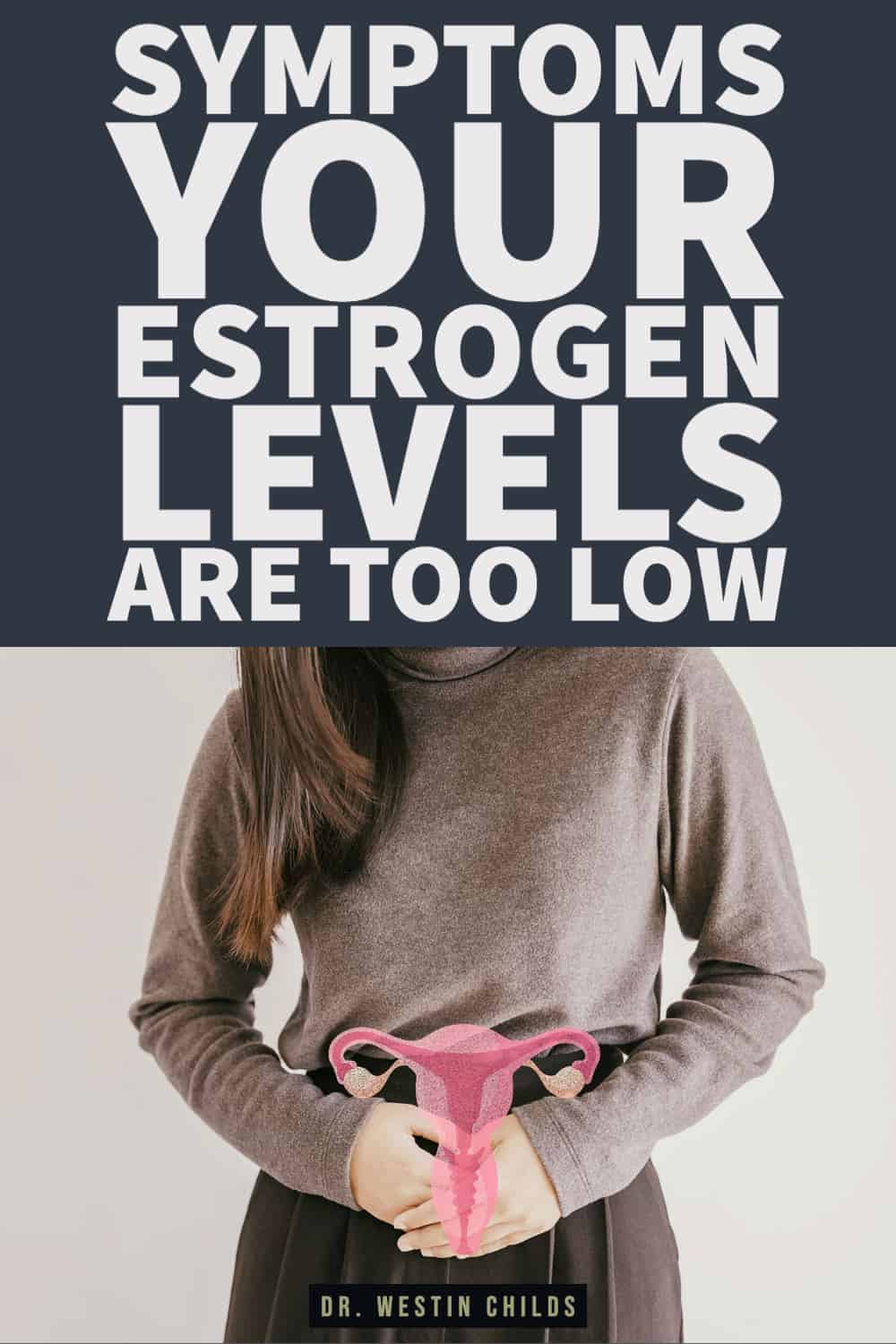
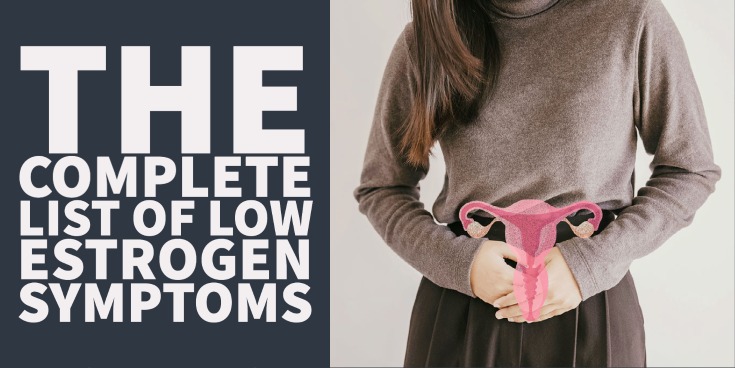
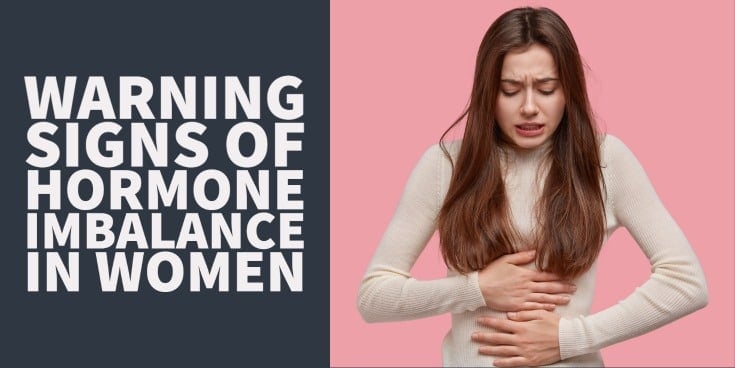
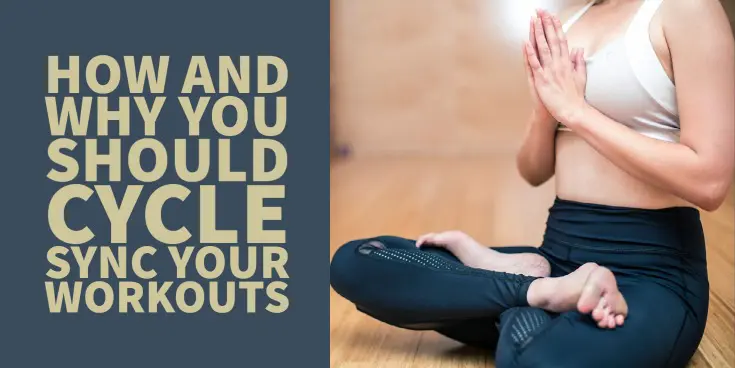
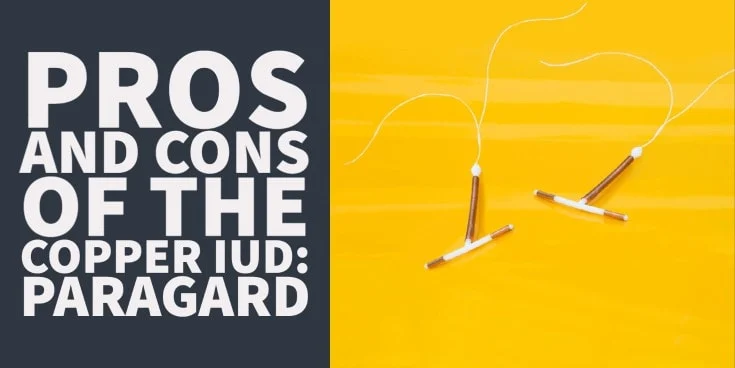
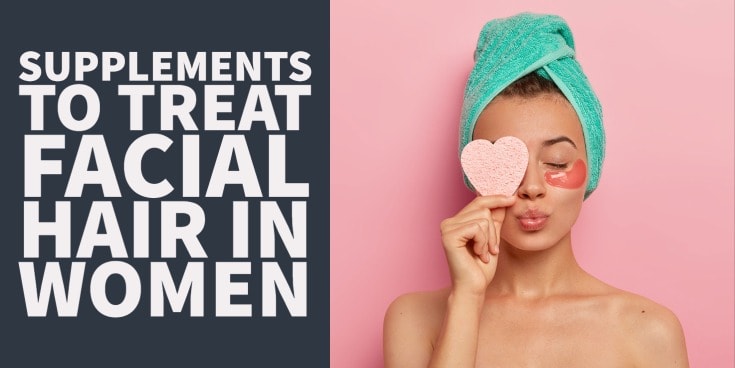
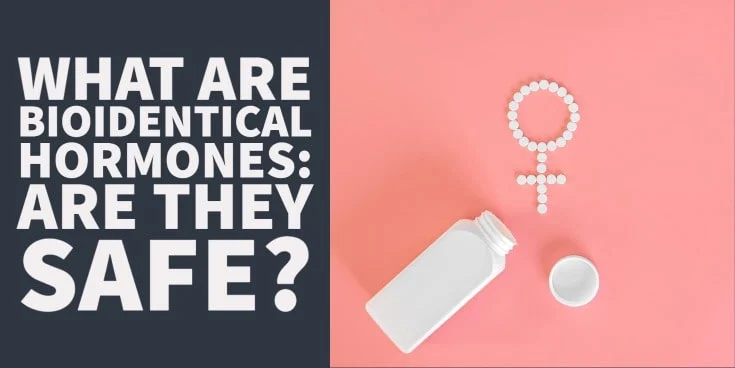
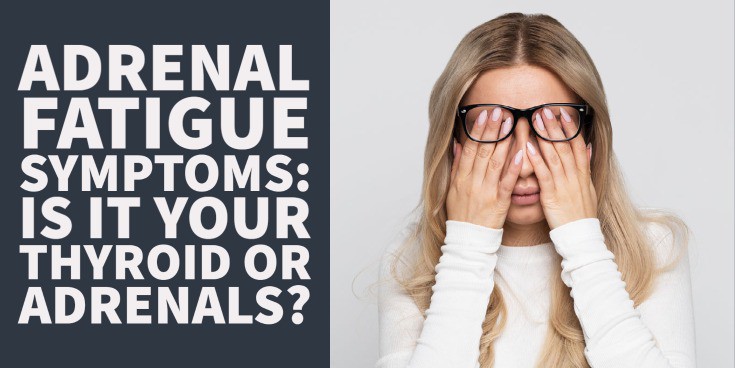

So glad I found your site. Lots of important information presented in an easy to read format. I have been on an aromatase inhibitor for six years due to breast cancer. I have absolutely no estrogen in my system so I experience all the negative side effects. Any food choices you could recommend that might help?
Hi Mary,
If you have an ER+ breast cancer then you wouldn’t want to increase estrogen as it may stimulate the growth of cancer cells. There may be some benefit to using vaginal estriol, however, to help reduce certain symptoms.
You can read more here: https://www.ncbi.nlm.nih.gov/pmc/articles/PMC3862044/
I’m a 26 year old woman and a couple weeks ago, I got my hormones checked and found out my estradiol is <5.0 and my FSH is 0.7. I’ve got pretty much all of these symptoms and my doctor has just been acting like it’s no big deal and won’t even talk to me about the results until April at my next appointment. Is there anything I can do to help get my levels up in the meantime while I’m waiting for my appointment?
Hi Hannah,
They will act like it’s not big deal because, for the most part, they have no idea what to do about it. For the most part, conventional treatments for sex-hormone related problems in young women is relegated to oral contraceptives.
But beyond that, you also have to take into account your cycle and when your labs were drawn as that changes your interpretation of the results quite a bit. So unless these were drawn at a specific time during your cycle, it’s hard to provide any input on what they might mean.
Interesting read. Recently had labs and dr said everything is normal but I’ve got severe mood swings, weight gain, insomnia, fatigue, etc. I had partial hysterectomy years ago so I have ovaries. I’m 49 yrs. Labs showed FSH 22.2, estradiol 21, progesterone 1.4 and testosterone <..1. I am miserable and have yet to find a different dr that I can get an appt before next year. I feel like I'm on a roller coaster- I can't even get high school graduation party planned. Any suggestions would be greatly appreciated!
I have the same questions. I’m also 49.
I have been experiencing the same as you Lisa… I’m 44 and had a partial hysterectomy 8 yrs ago and all my labs are “normal”… experiencing a lot of other physical changes as well.
Can you have low estrogen even though a blood test says other wise?
Hi Brittney,
Not that I’m aware of unless the testing was inaccurate for some reason.
I wouldn’t agree with that. You can have low estrogen for YOU.. in comparison to a prior level.. absolutely!!! Just because it’s “normal” doesn’t mean it’s YOUR normal.
I personally would recommend that all women have a baseline understanding of their hormones LONG before their 40’s. Preferably in their late 20’s/early 30’s. Taken same day of cycle maybe a few years apart.
My labs are “normal”.. I’ve missed 3 periods now and have “normal” (not low) estrogen. But.. I’ve obviously been in perimenopause for years and am entering the final phase even though my labs clearly say otherwise, the symptoms (and lack of periods) say otherwise. For me I think I always had very HIGH estrogen and my body LIKED that.. a LOT. Now that there’s LESS? But now “low”? Wow…. what havoc that wreaks.
Hi Dawn,
Good point and you are 100% correct. You would need to have previous levels to determine if this is the case, though, and it would be difficult to diagnose if you’ve only ever tested your estrogen in the perimenopausal state.
I had a partial hysterectomy 4 years ago last year my estrogen level was low, I’m having hot flashes, fatigue, heart palpitations and not sleeping well. I don’t want to take HRT because a lot of people say it has lots and lots of side effects.
Hi Margie,
It really only has side effects if it is dosed incorrectly, if it is dosed correctly it shouldn’t be an issue.
Great, information article. I have almost all the symptoms of low estrogen. Testing showed it to be quite low at 18. I was on the pill at that time, does that make a difference and would you recommend Biodentical estradiol with those results?
Hi Raquel,
If you were taking birth control at the time then that will always result in lower estradiol levels. You would need to go off the pill and then re-check your levels.
am*********@***oo.com
I had my first child a year ago. I only breastfed for 1 month and went back on oral contraceptives after my first period around December. Within the last 2 months, I started experiencing about 20 hot flashes per day and night sweats. I got blood work last week and it showed very low estradiol and FSH. Am I in menopause? I’m only 32!! Can I still have children if put on HRT?
Hi Amber,
Your estradiol will always be low if you are taking oral contraceptives (they shut down your normal hormone system). You’ll have to go off of the birth control pills to determine if you really have low estrogen or not.
Hi there,
I’m a 23 year old female who has low estrogen. I stopped having periods about 2 years ago and have a lot of the symptoms (including hair loss, fatigue, mood swings, severe depression, etc.) I exercise but not more than a normal person, I eat mindfully and healthy but not restrictive, I’m stressed out and don’t get much sleep which is similar to most of my friends my age, but when I went in for tests there seemed to be nothing else aside from low estrogen. What could be the root cause of this? And aside from taking the pill (which is what was suggested by the gyno), what should I do? How I can I help this? I’m scared it will go too far and I’ll begin to lose bone destiny or experience heart problems!
I am a 65 year old female. I had my thyroid removed 90% about 25 years ago. I’ve been on synthroid 88 every since and doing well. Two years ago I had uterine cancer which resulted in a full hysterectomy. I did well afterwards but know I’m severely depressed. I’ve had thyroid checked and also started Lexapro and Wellbutrin for depression. Do you think low Estrogen could be my problem. I need help!!!!!
Hi Delena,
For depression, I think you should look at your thyroid specifically, but estrogen can certainly play a role as well. I would look at this article for more information:
https://www.restartmed.com/t3-thyroid-hormone-depression/
https://www.restartmed.com/hypothyroidism-and-depression/
What if your estrogen levels are mid-range, say 50 in the leutal phase, but your SHBG is above 90? Does that make a woman functionally low on estrogen?
My libido has been gone over 3 years. I’m 46 on thyroid meds. My levels are in check. Insulin resistant, got that under control, dhea was low. I’m supplementing that. Low testosterone. I’m on HRT for that. And still nothing! I just found out I have high cholesterol. Could this be the culprit? Thanks! Heather
Hi Heather,
Probably not, cholesterol shouldn’t directly impact your libido.
Hello,
I am 52, in menopause and symptoms I am having are cycles of insomnia, headaches. I have regular symptoms of low libido, vaginal dryness.
I am pretty active (triathlete, although recovering from an injury currently). I have gained about 5-8 extra pounds, but also know that not being as active as I was while training also plays a role in that.
My mother had breast cancer and ovarian cancer and the use of any hormones scares me. Is this justified? I have been using vaginal estrodial (sp?). Is it better to use estriol?
Thanks! Alisa
Hi Alisa,
Your fear is really only justified if your mother was young when she had cancers or if there was a genetic component. If she had both cancers when she was 60+ then it’s probably a non-issue.
I have been through menopause, had thyroid surgery, on levothyroxine, and need to lose at least 100 pounds. I also have a lot of allergies, on allergy shots and Xolair shots for allergy induced asthma. I know my estrogen levels are low because I have that crepe skin. What would you suggest I do with all these issues to lose weight abd be able to maintain it?
Hi Judy,
I would recommend that you take a look at my weight loss program for more info on that topic: https://www.restartmed.com/hormone-mastery/
Hello,
I’m 38, healthy, very strong, somewhat muscular build.. a bit confused.
I have fairly normal periods, but sometime intense cramping. I also have a few rogue hairs on my chin. Sometimes I experience vaginal dryness, and sometimes not. I went through a period of 4 years that were very stressful where I had no sex-drive and gray hair started to pop up. I feel like I’m losing tone in my facial skin and recently it feels like my hair is thinning on the temples and in the back. I’m not sure what to do…
I feel like I have low estrogen… I actually feel like i have no hormones….except some androgens…..???
Hi, i have been experiencing weight gain a year from now.
Went up from 65 to 78 kg in a year.
I tried many diets, they only put me down to 73 max.
I did my blood hormonal tests, everything was normal except the estradiol level was 19, knowing i did the test on my period(3rd day)
The doctor prescribed for me promolut N
I took it as prescribed and my period came after stopping by 4 days.
I am concerned about my health cause the headaches are still there, along with mood swings, weight gain…
Should I wait more than just 2 weeks to see effective results?
I really felt so down when the results came to normal when i had many symptoms and irregular periods for a year and a half
Hi what else should be looked at after result of low estridiol? Other hormones came back normal, my TSH was normal. I’ve been told I had pcos years ago with acne issues. I’m in my early 30’s. I haven’t had a period in four months, and have also gotten some gray hairs?
I’m 54… very low energy level; no sex drive(it’s very painful)… I’ve never been tested for low estrogen. Is Evening Primrose the only supplement that could possibly help?
Thanks so much!
LM
Hello,
read all articles (very useful and most complete), but still couldn’t find the answer to one question: what are ‘normal’ levels of Estrogen, Progesterone, and the ratio, for the post-menopausal (full hysterectomy) women on BHRT. Estrogen and progesterone test results are based on women, who still have their periods and have all these cycle phases or post-menopausal, where ‘normal’ is low, but I take BHRT not to feel like post-menopausal. I was trying to go off the symptoms, but got all confused, because the same symptoms could indicate high estrogen or high progesterone and etc.
I’ve been trying to balance them all out for a 5 years now… so frustrated 🙁
I am 39, coming out of a very stressful couple of years. I recently had a partial hysterectomy. Leading up to it, my wonderful NP did a complete hormone profile.
I have low testosterone, estrogen, and progesterone. She would like to start bioidentical HRT. She’s quite worried about osteoporosis. I would like to try a few months on herbs like vitex to try to pull levels up naturally. I don’t really want to be on hrt for a decade.
Do you think that, given how damaging low sex hormones are, that it’s best to just start the hrt versus trying to do an herbal regime? I just hate the thought of my body not healing, just applying a hormonal band-aid. I was able, over a space of 2 years, to rehab my thyroid and I’ve been off my armour thyroid for 18 months with great numbers.
i am 72 and did a Estradiol at 10 pg/ml
and Progesterone 0.1 ng/ml
test few days ago..my doctor said its Very Low , but normal for my age. I have sleep issues bad, energy real bad, wtg yes…could take off but my main issue is the energy…can t figure this out…my B 12 is good and so on. so i was wondering if i take a over the counter supplement cream or pill could this help balance both above. there is such for don t know if one cream or one pill will help with both…can you suggest?
Hi Deborah,
I don’t have enough information here to say one way or the other but you can always do some trial and error by looking at your symptoms and lab tests after you make changes.
I am 40 and due to longer that usual menstruation (it lasts 8-12 days) and shorter cycles+mid-cycle spotting I made some tests and then I repeated them (in other laboratory and even country) and was exactly the same: on 3 cd (it is recommended to do this test on 2-5 cd) fsh 21 and estradiol on lower limit or slightly below (about 13-15).On luteal phase (day 21) progesterone 13 and estradiol 120-both normal. USG examination (repeated at other doctor) excluded abnormalities like fibroids or polyps.I have also regular ovulation symptoms.Do I have too little, to much estradiol or too little progesterone?Is that possible that high fsh leads to very high estradiol rise, although it is low in the beginning of the cycle?What can I do with that?
I am absolutely miserable. I’m almost 51 years old, had a partial hysterectomy 15 years ago, have had perimenopause related symptoms for 10 years, but I can not find a doctor who will help me. They are terrified of giving me bioidentical estrogen because they are afraid of cancer. Yet my labs come back at .1 progesterone, <15 sensitive Estrodial, 58 Fsh and 18 lh. I am being told LH must be over 30 before they will give me estrogen. Meanwhile, I have gained 20 lbs and can not lose it with a low carb, no sugar diet, have no energy, brain fog, dry skin and hair, and an overall feeling of icky. I wish doctors would be more open to treating symptoms of menopause rather than focus on labs.